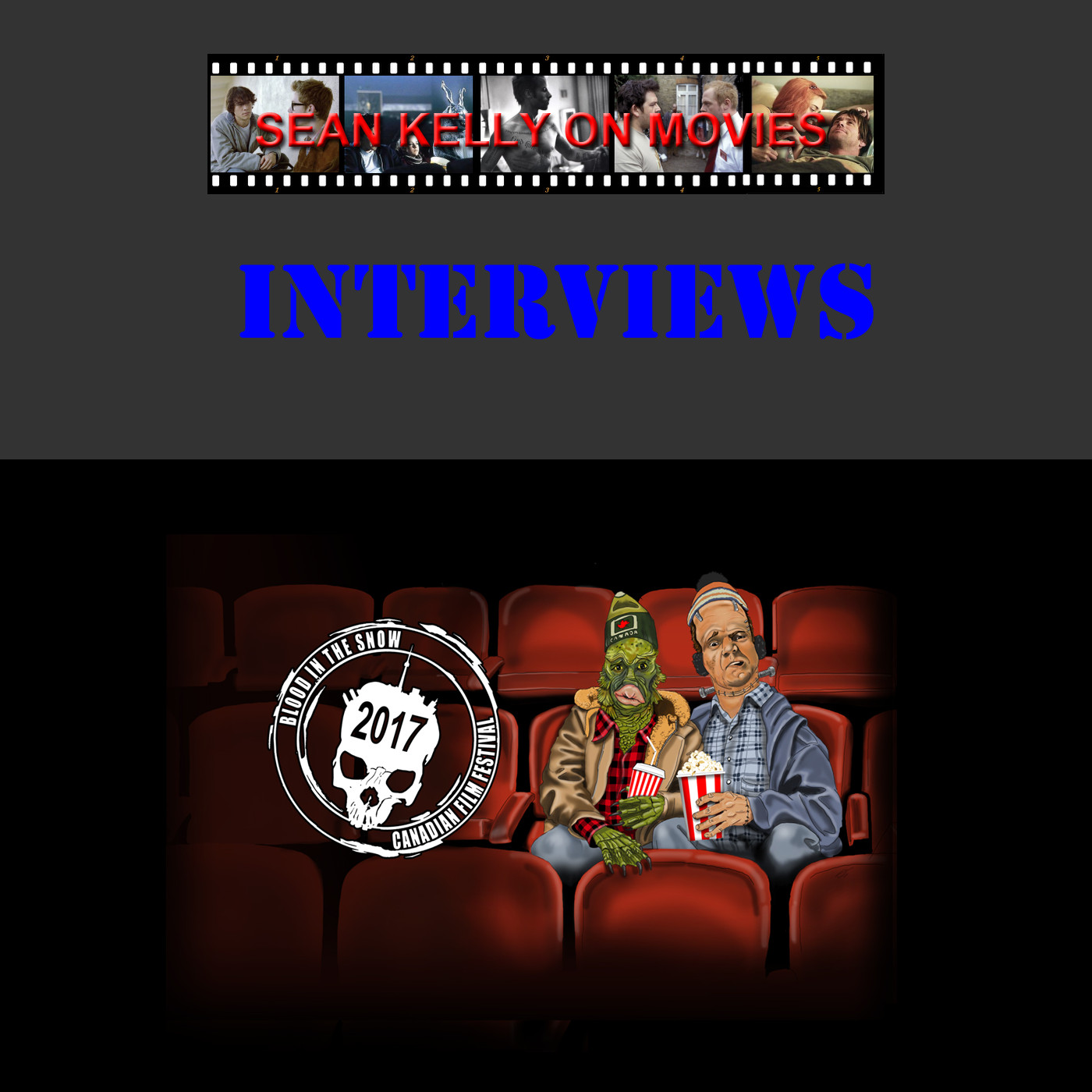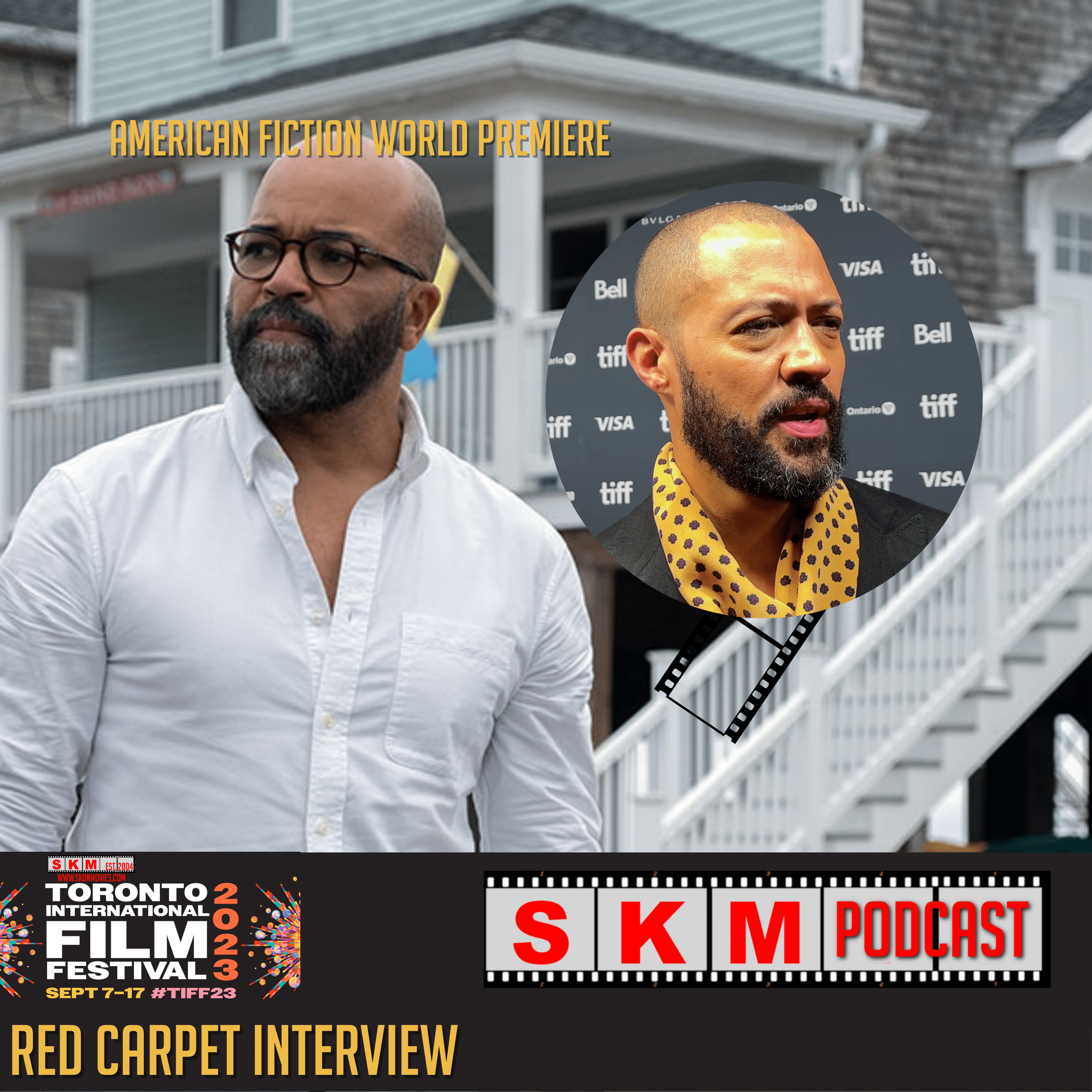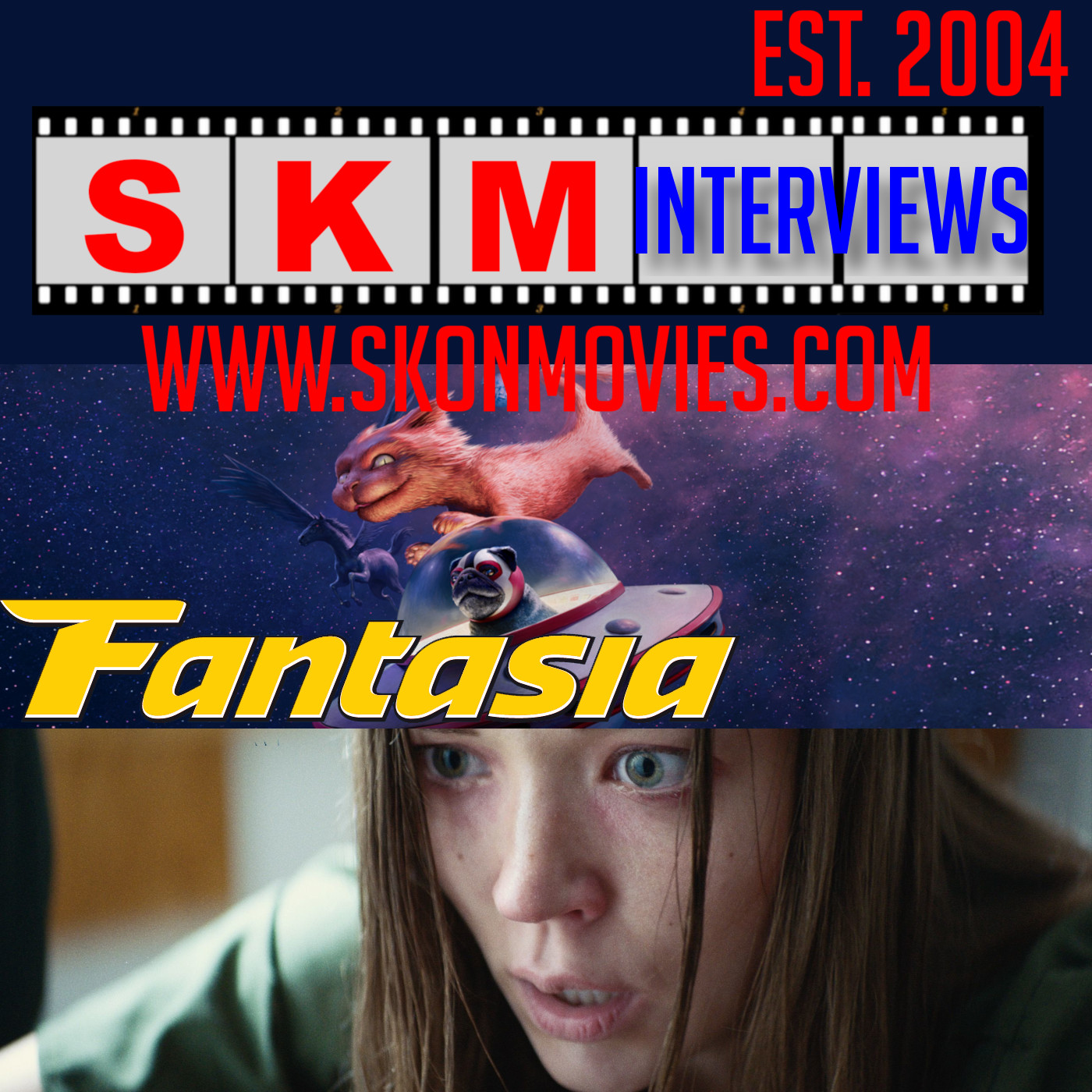[00:00:06] Speaker A: This is the Sean Kellyon Movies podcast.
[00:00:08] Speaker B: For Friday, March 12, 2021, featuring an interview with Anthony Scott Burns about his film Come true.
Hello, and welcome to Sean Kelly interviews on the SKRM Movies podcast. Today I will be talking to Anthony Scott Burns, writer director of the Sci-Fi horror film Come True, which comes out today in Canada through Raven Banner and I, United States through IFC midnight. In our discussion, me and Burns talk about the film, its themes, evolving dreams, and what is probably the most common ground between us having Asperger's. I hope you enjoy.
[00:00:41] Speaker A: Okay, so first up, how did the idea for come true come about?
[00:00:48] Speaker C: The idea for Come true came from me seeing a video online that was from Berkeley University, and it was detailing brainwave technology to interpret brainwaves into images from the sort of ocular nerves and translate them into imagery that our eyeballs see. And between that and the documentary the Nightmare by Rodney Ashere, that combination made me think about how I could, you know, potentially, you know, devise a way of seeing these things. And because I had had sleep paralysis when I was a kid, when I was eight years old, I.
I was entranced by this idea that we all see the same shadowy creatures when we have sleep paralysis. And so I just wanted to explore that with this Berkeley technology.
[00:01:50] Speaker A: Yeah. So that was actually my second question, is that the core of the film seems influenced by the phenomenon of sleep paralysis and the united fear of the shadow. So could you talk a bit about more your own personal experiences of sleep paralysis?
[00:02:05] Speaker C: Well, my mother passed away when I was eight years old.
And immediately afterwards, I started to have sleep paralysis where I would wake up in the night and I couldn't move, and I would see this shadowy thing sitting on the end of my bed. And at first I thought maybe it was my mom or, like, the ghost of my mother.
And quickly, you know, over about a month of having these repeated sort of episodes, I started to get fearful and realized that it wasn't my mom, and that if this thing had turned around and looked at me, I knew I felt like I was going to be killed by it, which was kind of horrifying. And so, yeah, that was my experience. And I forgot about it until I saw the documentary the nightmare. And it brought back those nightmares.
And really, it was great to see that other people saw similar things, but also really scary.
[00:03:07] Speaker A: So one of the key visuals of the film are the nightmarish hellscapes. And I just wondering, how will you manage to pull those off on your budget?
[00:03:18] Speaker C: Well, I don't know if, you know, this but I have Asperger's syndrome.
[00:03:22] Speaker A: Me too.
[00:03:23] Speaker C: I know.
And so my focus, luckily, is movies. And I'm able to learn how to do a lot of this stuff on my own because of, you know, how it is, and I just have the sort of obsession with it. And so those nightmares were, you know, I had great collaborators helping me build the worlds, but ultimately a lot of them were created with me just sitting at my computer and just really, I like to say I was painting the nightmares because, you know, digital, you know, you can do that now. So, yeah, they were just personal expressions, you know, built out in cg.
Computer graphics.
[00:04:06] Speaker B: Yeah.
[00:04:07] Speaker A: So moving a bit more specific into the plot. When we were introduced to Julia, Sarah Stone's character of Sarah, we don't really know much about her other than she is plagued by nightmares and for some reason is not staying at home. Did you always intend of her to be a bit more of an enigmatic character?
[00:04:27] Speaker C: Yes, absolutely. I'm somebody who, as you know, yourself, interpreting emotions for me, is far more interesting than people saying the words. And so I felt like the things that were going on in her home mirrored a lot of the things that I thought were going on in my home. When I was younger, when my mother passed away, there's a lot of mixed emotions. And so I just wanted to play them out on her face as opposed to having her say the words. Because I think, for me, if I'm trying to explore something, it's far more interesting for me to try and explore those dialogues with the actors faces than it is with just people saying, I feel sad or I feel upset. That's what we. That's what I was trying to do, is make something that was more of an emotional interpretation of what was going on with her.
[00:05:23] Speaker A: And then in December of eight, there is Jeremy, who's introduced before we know he's involved with the sleep study. So why would you say that he's so interested in Sarah's character?
[00:05:36] Speaker C: Jeremy's character is somewhat of, and I like to say he's more of a vessel for my exploration of when I was younger, I don't know if this happened to you, but when I would watch movies, because I know the difference between right and wrong, I wasn't responding to what I call the Jedi mind trick that filmmakers play sometimes.
And so when characters would do things that were morally ambiguous or wrong, it really affected me. And I use the example. I feel bad for Joe Dante because I keep using his film as an example, but in. Because it's not his fault. It's a sign of the times people accepted this behavior. But in the movie explorers, you have the children and they. I don't know if you've seen that film from the eighties. Have you seen it?
[00:06:34] Speaker A: It's probably one of the few Joe Dante's I haven't seen.
[00:06:36] Speaker C: Ah, interesting. Well, in that movie, these children, they develop a way of, they're sent messages from aliens in space, and they develop a way to hover inside of a computer generated sphere. And it's like it's made so that they can fly to space. Anyways, the first thing they do with that sphere when they can fly is they try to sneak peeks on the girl at school that they like in her bedroom. And Jeremy is me examining that kind of character, because I don't think people have fully come to understand that stalking and that kind of behavior is unwanted. And it's not cute and it's not romantic. And when you have Asperger's, you see that right away because it's right there and there's no emotion clouding the judgment. Do you know what I mean? When I see someone acting that way, I see them acting plainly. And it's not something for interpretation. It's that right away I understand that that character has an objective, and his objective is to be with Sarah, and he's going to try and get to that objective.
And I wanted to show people that in a very plain way, and that's why he is a very questionable character.
[00:08:05] Speaker A: So how would you compare Jeremy to that of Doctor Meyer, who is the leader of the sleep study and actually kind of disappears from the film after the big set piece at the midway point point?
[00:08:17] Speaker C: Well, again, these characters are archetypes of cinema, more so than they are real people, and therefore they serve a purpose, and they serve a purpose within Sarah's.
I don't want to spoil the film, but in Sarah's world, and they serve a purpose, that is to take the audience and take Sarah to her destination. And they are archetypes, but they're also built from how I perceive scientists to be and how I think people perceive scientists to be, as opposed to how scientists are.
And so Jeremy and Doctor Meyer work in very different ways because Doctor Meyer is the overseer in a sort of, again, archetypal way. He, he doesn't really get involved.
[00:09:15] Speaker A: So was it just a conscious choice on your part to, after the big sleep paralysis scene, that you focused more on Sarah and Jeremy?
[00:09:26] Speaker C: Yes, that always the film is, it's about Sarah's journey. And I think some people get confused when they see the film and they think that the movie's actually about sleep paralysis and getting in a horror aspect, but it really is about Sarah's journey and also it's a. About the person watching the film's journey. That's. That's an even more important layer to me is that people at the end of the film have a different best way to say this.
They are left disoriented. That's what I want from the end of the film, is that people are disoriented.
[00:10:06] Speaker A: Well. Well, I think the film does make a very, um, interesting respite from horror during the modern fears sequence. So we'll move that into talking about electric youth. And how did they became involved with the film and doing the score with pilot priest?
[00:10:25] Speaker C: I've been working and talking with them for over six years now.
I reached out to them when I was in LA one time and I. We both found, you know, we just recently found out that we were both from Toronto and we had been talking online and then we met up and we just really hit it off and enjoyed the same kinds of films and enjoyed the same kind of music. And so we started working together almost immediately. I did some remixes for them of modern fears and runaway. And we were talking about this film come true for a long time. And they wrote a cue called the Seeker that you can actually listen to right now that's outd very early on in the process. And it was something I listened to all throughout the creation of come true.
And their music, just, for me, was integral emotionally to sort of ground again, Sarah's dream or world in a place that people could understand because the movie is about being comfortably taken somewhere that is uncomfortable.
[00:11:35] Speaker A: So how exactly did you settle on the title of come true?
[00:11:40] Speaker C: Very easily is that we wanted to hint at the fact that the movie is about dreams, but not tell people that. And obviously, and it's a hint that you're going to have to decipher the title you have to decipher the character you have to decipher. And the film itself you have to decipher. And some people get to the end of the film and think that they've been fooled, but there is no fooling in the. In the movie. It's not meant to do that to you.
[00:12:09] Speaker A: Yeah, that's the. That's something that I've. I actually read that actually, before seeing the film, is that people thought that the ending was a cop out. But I. I didn't really view the ending that way. I'm trying to not talk about the ending.
[00:12:22] Speaker C: Yes.
[00:12:23] Speaker A: Straight from spoilers. But, like, yes, it definitely, the ending kind of, like, gives you something to think about and kind of reframe what you've seen before. Like a, like, like one thing that I was, like, immediately brought back to the scene when Sarah passes out in the laundromat because that's a very enigmatic scene when you, when the woman wakes Sarah up and tells her that the guys took her phone, and then we don't see her phone again until, like, the end.
[00:13:00] Speaker C: Yes. Well, it's interesting to note in that scene that she jumps to the conclusion that she's lost her phone, but the person only says to her, they took something from you, the boys took something from you. And the lady does not say, they took her phone. They took something from her, and she immediately reaches for her phone and it's gone. And when you think about dream logic and how things sort of flow in dreams, that's, that's a great hint point in the film as to that things are changing into something else and not in reality.
[00:13:39] Speaker A: Yeah. Well, I've seen the film three times now, and I've noticed new things each time.
[00:13:44] Speaker C: Like, thanks for watching it so many times.
[00:13:47] Speaker A: Well, like, once for fantasia, once for blood in the snow, and then once just to prepare for this interview. So nice.
[00:13:53] Speaker C: Amazing. Thank you.
And how did, how did it affect you as someone else with Asperger's? Did you, did you understand the emotionality in a way that it affected you?
[00:14:05] Speaker A: Oh, yeah. Well, I haven't had any personal experiences of sleep paralysis, but I do found that the shadows are scary and, like, I love the, I love the hellscapes and just, you can just escape into those worlds pretty much.
[00:14:22] Speaker C: Nice. Yeah. No, for me, I've always responded personally to movies that are journeys and are journeys that take their time so that I can actually stay and really get pulled into the environment.
Yeah.
[00:14:42] Speaker A: Okay. So I think that'll be it.
[00:14:45] Speaker C: Great. Great. Well, thank you so much for watching and for enjoying it, and I hope that you'll watch it again and maybe you'll get even more out of it on subsequent watches.
[00:14:57] Speaker A: Okay.
[00:14:57] Speaker C: But it's been a pleasure talking with you, Sean.
[00:15:05] Speaker A: The Sean Kelly Movies podcast is hosted.
[00:15:08] Speaker B: And researched by Sean Patrick Kelly and is a production of SK onmovies.com dot hosting music and transitions courtesy of Anker FM. Episodes and show notes can be found at Skmmovies, CA. And you can subscribe to us via Spotify, Apple Podcasts, Google Podcasts, and where else podcasts are hosted. Support us by joining our
[email protected] sk onmovies this has been the Sean Kelly on Music Movies podcast for Friday, March 12, 2021. And I'll see you next time.


